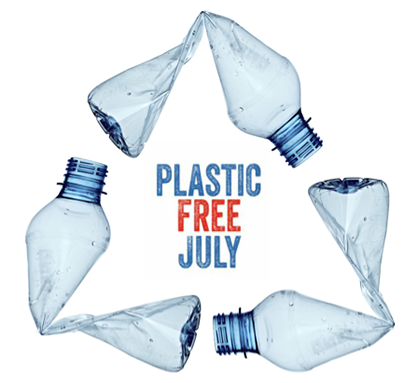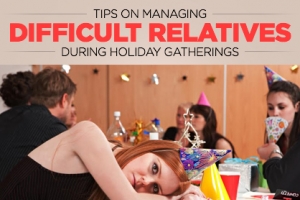Plastic Free July: Join the Challenge
In our busy, modern-day world of convenience, we have come to rely on single-use plastics daily, in beverage containers, diapers, trash bags, straws, shopping bags and more. Plastic waste is just part of our routine. We use it for five minutes, but it lasts forever. Developed in 2011, Plastic Free July targets this phenomena, encourage consumers to completely stop from using single-use plastic for one month each July.
“Whilst the challenge may seem daunting, there are some really simple ways to cut down on plastic. This includes using reusable containers, saying no to straws and carrying reusable shopping bags. It is important to remember that this is a challenge, not a competition. There is some plastic packaging you simply can’t avoid,” Plastic Free July co-creator, Rebecca Prince-Ruiz, said.
In 2011, American consumers generated 32 million tons of plastic waste, including nearly 14 million worth of containers and packaging. A mere 8 percent of this plastic waste was recovered for recycling.
The use of plastic is growing, yet ever single piece of plastic ever made is still in existence. Recycling won’t cut it. Plastic Free July goes beyond recycling, urging consumers to reduce, reuse, refuse, rethink and repair.
“Think about it. Why would you make something that you're going to use for a few minutes out of a material that's basically going to last forever, and you're just going to throw it away. What's up with that?” Jeb Berrier, BagIt Movie, said.
The challenge is focused on purging single-use disposable plastics from your life – even biodegradable or eco-friendly plastics. Single-use plastics include shopping bags, plastic cups, straws, water bottles, plastic packaging; anything you use once and then send to a landfill. Anything that is a durable good, such as toys, furniture or electronics, is able to be used.
This is no easy feat. It often requires quite a bit of consideration. Instead of throwing your garbage in plastic bags, line the bin with newspaper and then wrap it up for collection. Get your milk in cardboard cartons. Ask the grocer to wrap your meat of cheese in just paper.
“Since participating in Plastic Free July, I am constantly thinking of ways to reduce my plastic packaging. I have used my own reusable shopping bags for years, but now I take my own containers to buy meat and cheese and I try to purchase in bulk. During last year’s challenge I cut up an old net curtain to make different sized reusable bags for fruit, nuts and vegetables,” Plastic Free July participant, Wilma van Boxtel, said.
Even if you cannot rid yourself of all single-use plastic items, a little effort can go a long way. Try to target what is known as the “top four”: straws, plastic bags, plastic bottles and coffee cup lids. Anytime you cannot avoid using plastic, keep the item in a dilemma bag to share at the end of the challenge. If a month sounds too long, try the challenge for a week, or even simply a day. And be sure to educate others about what you are doing. It will get you thinking about changing your habits.
An effort of the Western Metropolitan Regional Council in Perth, Australia, Plastic Free July has grown from a local grassroots effort in suburban Perth to educate residents on the importance of reusing goods into an international observance.
To participate, visit Plastic Free July’s website and register your intention as an individual, family, group, school or business. You can register to receive emails with tips, tricks, news and support. For more information, including an extensive toolbox on going plastic free, visit www.plasticfreejuly.org.
Tagged in: causes, eco, green, philanthropy, environment, eco-friendly,

Tagged in: causes, eco, green, philanthropy, environment, eco-friendly,



